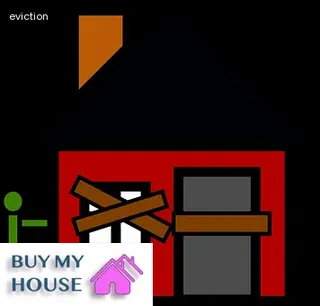When it comes to evicting tenants in Nevada, landlords and tenants must understand the eviction process. Eviction proceedings are governed by state law and can be a complicated process.
In Nevada, the eviction process must begin with the landlord providing written notice to the tenant. The notice must state the reason for the eviction and provide an opportunity for the tenant to cure any defaults.
Once proper notice has been served, if no action is taken by the tenant, then it can take up to five days before a court hearing is held. At this hearing, both parties will have an opportunity to present their case in front of a judge who will make a decision based on all evidence presented.
If the judge rules in favor of the landlord, then they will issue an order that gives possession of the property back to them. From there, it may take up to 45 days for law enforcement officers or a constable to serve papers and physically remove tenants from their property.
It's important that all parties involved understand each step of the process so they can prepare accordingly and ensure that proper procedures are followed throughout.

A Notice to Comply typically includes a timeline for the tenant to remedy the violation of their rental agreement or vacate the premises. The timeframe is defined by state law and in Nevada, the landlord must give at least five days’ notice before filing an eviction action with the court.
The timeline can be extended if there are extenuating circumstances such as illness or hardship. During this time, the tenant has an opportunity to fix any lease violations that have been noted to potentially avoid going through with an eviction process.
This could include paying any outstanding rent, repairing or removing damages to the property, or even correcting a pet violation if that was included in their agreement. In some cases, tenants may also be able to set up a repayment plan if they are unable to pay all owed rent at once.
If these steps are not fulfilled within the stated timeframe, then it is likely that an eviction proceeding will begin and it is important for tenants to understand how long this process can take in Nevada real estate.
The Nevada eviction process for tenants in real estate can take time, and it is important to consider all the necessary steps before asking for possession. Firstly, landlords must provide written notice of their intention to evict the tenant.
This must be delivered in person or by mail, and gives the tenant at least three days to leave. If the tenant fails to do so, a landlord may proceed with legal action and file an eviction lawsuit with a court.
During this process, landlords should ensure they have all relevant documentation such as a copy of the lease agreement and receipts for any rent payments received from the tenant. In addition, evidence such as photographs or witness statements can also be used if necessary.
Once an eviction order has been issued by the court, it is then up to law enforcement to enforce it. The length of time this takes depends on many factors including how quickly a sheriff can be dispatched and whether or not a tenant contests the order in court.
Knowing what is involved will help landlords understand how long they can expect to wait before having possession of their property again.

Serving the tenant properly is a critical part of the Nevada eviction process. Tenants must be served with specific documents, depending on their situation and the type of eviction being sought.
These documents typically include written notice from the landlord that informs tenants of the reasons for eviction and how long they have to vacate the property. It is important for landlords to follow all local and state laws regarding serving tenants since failure to do so can delay or even invalidate an eviction case.
Additionally, landlords must serve tenants personally or through certified mail, as this will provide proof of delivery if necessary in court. Finally, it is important for landlords to ensure that they are always courteous and professional when dealing with tenants during an eviction process in order to maintain good relationships while also following all legal requirements.
DoorLoop offers a variety of benefits for investors who choose to put their portfolio on the platform. From simple performance tracking to complex asset management, DoorLoop provides a comprehensive suite of tools to help you maximize your investments.
The platform also allows investors to easily keep track of their portfolio with real-time updates and notifications. Additionally, DoorLoop’s automated workflow helps streamline the process of managing multiple investments at once, making it easier than ever to manage your investments efficiently.
Furthermore, DoorLoop offers detailed analytics that can be used to inform decisions about which investments are performing best, and which ones could use a bit more attention. These features make it easy for any investor to take full advantage of what the Nevada eviction process has to offer in terms of real estate investment opportunities.
With DoorLoop’s robust set of tools and features, investors can get an accurate picture of how long it takes for the Nevada eviction process to complete from start to finish – all while managing their portfolio with greater efficiency than ever before.

Filing an effective complaint in the Nevada eviction process is key to ensuring a positive outcome. The first step is to document all relevant information, including the date and time of the incident, any witnesses present, and evidence that can support your claim.
Make sure you have all pertinent paperwork with you such as leases, rent receipts, and any communication between yourself and the landlord. It's also important to be aware of tenant rights under Nevada law so you can ensure your complaint is legally sound.
Once all necessary documents are gathered it's time to fill out the official complaint form from the court or local housing authority. Make sure to provide as much detail as possible when filling out the form, include any evidence that supports your claims and file it in a timely manner.
Taking these steps will help ensure that your complaint is heard quickly and efficiently during the Nevada eviction process.
In Nevada, a landlord may decide to evict a tenant for a variety of reasons. The most common reason is if the tenant has failed to pay rent, either in full or partially.
Additionally, if the tenant has violated any terms outlined in the lease agreement such as having animals that are not allowed according to the rental policy or damaging the property, then this could be cause for eviction. Landlords also have a legal right to evict tenants if they need to use the property for their own personal use or if they wish to sell it.
In any scenario, it is important for landlords in Nevada to follow proper eviction procedures and ensure that all legal documents are properly filed and served before initiating an eviction process.

When it comes to eviction proceedings in Nevada, evidence is key. Without ample proof that the tenant has breached their rental agreement, the landlord will not be able to have them removed from their property.
In order to make a successful case for eviction, landlords must collect as much evidence as possible that proves their tenant has violated the terms of their lease. This includes gathering any written communication such as emails or letters between both parties, taking photographs of physical damage caused by the tenant, and creating an itemized list of unpaid rent or fees.
Additionally, landlords should also consider reaching out to witnesses who can testify on their behalf and provide further proof that the tenant has indeed broken the contract and needs to be evicted from the property. Collecting this sufficient evidence will help speed up the eviction process in Nevada and ensure that tenants are quickly removed from the premises after violating their lease.
Nevada tenants facing eviction can access a range of free resources to help them understand the process and protect their rights. Legal Aid Center of Southern Nevada (LACSN) provides detailed information on the Nevada eviction process, including how long it may take, to tenants in its Tenant Rights Guide.
Additionally, LACSN offers free legal services for tenants facing eviction proceedings such as assistance with completing paperwork and representing them in court. Other resources include Nevada Legal Services which provides support to low-income households and publishes an extensive guide detailing the rights of tenants and landlords during the eviction process in Nevada.
Furthermore, housing counseling is available through many non-profit organizations located throughout the state who can provide advice on tenant's rights, dispute resolution methods, and budgeting tips. Finally, tenants have the right to use mediation services if they feel that an agreement between themselves and their landlord cannot be reached.
Through these free resources, Nevada tenants can ensure that they are aware of their rights during the eviction process so they can make informed decisions about their real estate situation.

The Nevada eviction process is a legal procedure that must be followed when evicting a tenant from a rental property. Typically, it begins with the landlord providing written notice to the tenant and giving them an opportunity to comply with their lease agreement.
If the tenant does not comply, the landlord can file for eviction in court. The court will then schedule a hearing and issue an eviction order if the landlord's case is successful.
The length of time it takes for an eviction to be finalized depends on how quickly the court is able to process the paperwork and make a decision. Additionally, tenants may also appeal an eviction order, which could prolong the process further.
It is important for landlords to understand their rights and obligations under Nevada law as well as any applicable local rules or regulations. Knowing all of these factors can help landlords navigate the Nevada eviction timeline more effectively and protect their interests.
DoorLoop is a great resource for landlords in Nevada who are going through the eviction process. It can help save time and make more money during the entire process.
DoorLoop provides customized, step-by-step guidance to help navigate the legal paperwork associated with evicting a tenant quickly and efficiently. Additionally, their software platform allows landlords to track the entire eviction process from start to finish, making sure that deadlines, court dates, and other requirements are met promptly.
This helps landlords save time and money by avoiding costly delays or missed opportunities due to lack of information or understanding of the laws. Furthermore, DoorLoop’s knowledgeable team of experienced professionals have extensive knowledge in Nevada real estate law and can provide assistance if needed during any stage of the eviction process.
With their detailed tools and resources, DoorLoop makes it easier for landlords throughout Nevada to understand how long does the Nevada Eviction Process take for tenants in Real Estate and what steps need to be taken in order to make sure everything goes smoothly.

DoorLoop is an online service that provides tenants in Nevada with an easy way to sign up and accept terms for the eviction process. The platform allows users to quickly and securely enter their information, review their rights, and sign the paperwork needed to initiate the eviction process.
DoorLoop simplifies the entire process by providing a step-by-step guide and automated reminders so that tenants can stay informed and up-to-date. With DoorLoop, there is no need to worry about filing fees or scheduling in-person meetings, as all of these steps are handled within the platform.
This makes it easier for landlords and tenants alike to keep track of how long the eviction process will take in Nevada, as well as any other information they may need throughout the course of their rental agreement.
Recent news and updates regarding evictions in Nevada have made it important for tenants to be aware of the timeline for the eviction process. In real estate, the length of the Nevada eviction process can vary depending on several factors, such as whether a tenant has a lease or is renting month-to-month and if they are current on rent payments.
Generally, an eviction notice must be served before any legal action can take place. The period following this notice is typically five days, during which time a tenant may pay back rent or vacate the premises to avoid further action.
If no action is taken, the landlord can file an unlawful detainer complaint with the court system. After filing, a hearing will be held at which time evidence of nonpayment of rent should be presented.
If found in favor of the landlord by the court, an order will be issued mandating that a tenant vacate within five days or face forced removal from their property by law enforcement officers.

When it comes to real estate in Nevada, the eviction process can be costly for tenants. It often takes a significant amount of time and money to go through the entire eviction process.
Depending on the situation, evicting a tenant can take anywhere from days to weeks or even months. In order to successfully remove a tenant from the property, landlords must first provide proper notice that outlines the reason for eviction.
If the tenant does not leave after receiving this notice, then the landlord must file an unlawful detainer with their local court. This typically costs around $100-$200 in filing fees and court costs.
After filing an unlawful detainer, a hearing is set up which could last anywhere from three weeks to several months depending on how quickly they are able to find a court date. If the judge rules in favor of the landlord, then they may also receive back rent or other damages associated with evicting a tenant.
However, if both parties come to an agreement before going to court, then there may be fewer costs associated with this process.
The decision to take legal action during an eviction in Nevada is a difficult one. On one hand, the tenant may be able to successfully contest the eviction and remain in the property, but on the other hand, contested cases can be costly and time-consuming for all parties involved.
It is important for tenants to understand both sides of the equation before making a decision about whether or not to take legal action. In Nevada, tenants have certain rights under state law that must be respected throughout the eviction process.
These rights include being provided with proper notice of an eviction and being given sufficient time to remedy any lease violations or make payment arrangements. If an eviction is contested by a tenant, they may be entitled to a hearing before a court before an order of eviction is issued.
While this could potentially delay an eviction order, it also provides tenants with additional time to find alternative housing arrangements if needed. Ultimately, taking legal action during an eviction in Nevada can be a viable option if done correctly, but should only be undertaken after careful consideration of both pros and cons.

When facing an eviction hearing in Nevada, tenants must be prepared to present evidence that demonstrates the seriousness of their situation. Before the hearing, tenants should gather any documents that support their claim, such as pay stubs, bank statements, and copies of lease agreements.
Additionally, it may be beneficial for tenants to provide a detailed explanation of their hardship and current financial standing. Having a written explanation of the tenant's current circumstances can help prove that they are unable to pay rent due to extenuating circumstances and are not intentionally trying to avoid paying rent or breaking contract.
During the hearing itself, tenants should remain calm and respectful while presenting their case. Keeping a professional demeanor can help demonstrate to the judge that they are serious about resolving the issue in a timely manner.
Finally, tenants should be aware of all relevant state laws regarding evictions before appearing at the hearing in order to understand what is expected from both parties throughout this process.
When it comes to eviction proceedings, most tenants in Nevada are aware of the traditional courtroom dispute process; however, there are alternatives available to them. It's important to understand the potential consequences of not complying with an order to vacate so that tenants can make an informed decision about the best course of action.
So, how long does it take to evict a tenant in Nevada? This comprehensive guide will provide you with the answers you need when navigating disputes involving unlawful detainer actions. Generally speaking, these actions can move quickly and may be completed within one month; however, this time frame may vary depending on the specific situation and whether or not any legal challenges arise along the way.
It is also important to note that landlords must follow certain procedures when initiating an eviction for failure to pay rent or for any other cause. To ensure a swift resolution, it is essential for both parties to be familiar with their rights and responsibilities under Nevada law.
Do I have 30 days to move after an eviction in Nevada? The eviction process in Nevada can be a lengthy one, and the amount of time tenants have to move out after receiving an eviction notice can vary depending on the circumstances. Generally, Nevada tenants have between five and 30 days to leave their rental property, but this may depend on the landlord's specific agreement with the tenant or any county or state laws that apply.
In some cases, landlords may require tenants to vacate immediately upon receiving an eviction notice. However, most landlords will provide their tenants with at least five days’ notice before filing for an eviction or having them removed from the property.
Additionally, if a court orders an eviction, it is likely that the tenant will be given a longer period of time to find new housing. Once a tenant has received an official eviction notice, they should act quickly as possible to minimize their losses and begin searching for a new place to live.

Delaying an eviction in Nevada can be a tricky process. Depending on the specifics of your case, you may be able to delay your eviction by filing specific motions with the court or making certain payment arrangements with your landlord.
There are generally two steps to the Nevada eviction process: (1) the Landlord must first serve the Tenant with a written notice to vacate; and (2) if the Tenant does not comply, then a court action is necessary for the Landlord to obtain a judgment for possession from a judge. To delay an eviction, Tenants should speak with their landlord to determine what options are available, such as paying past due rent or making other arrangements.
Additionally, it may be possible for Tenants to take legal action to postpone the proceedings. For example, filing a Motion for Continuance could potentially allow more time for negotiations and keep the case from proceeding until all parties have had adequate time to reach an agreement.
Ultimately, how long an eviction takes depends on each individual situation and it is important that Tenants understand their rights before taking any steps so they can make informed decisions throughout the process.
No, a landlord cannot evict you without a court order in Nevada. The eviction process in Nevada is governed by the state’s Residential Landlord and Tenant Act (RLTA).
According to the RLTA, a landlord must first serve a tenant with written notice of the termination of their tenancy. The notice must include information about why the tenant is being evicted and how long they have to move out.
If the tenant does not comply with the notice, then the landlord may file an eviction lawsuit against them in court. The length of time it takes for the Nevada eviction process to be completed varies depending on various factors such as how quickly a court hearing can be scheduled and if any appeals are made.
In general, however, it typically takes two to three months for an eviction case to go through court proceedings and for a tenant to be legally evicted from their residence.
When facing an eviction notice in Nevada, the tenant should be aware of the legal process and timeline that they are obligated to follow. Tenants should first understand their rights under Nevada's landlord-tenant laws.
The tenant should then check whether their rental agreement contains any additional provisions regarding the eviction process. If so, they must comply with those provisions as well.
After confirming that all of the appropriate documents have been served, tenants have a five-day period to respond to the eviction notice by delivering a written notice to the landlord or court. After this response is delivered, landlords can file for an unlawful detainer lawsuit with a district court in Nevada where the property is located.
This lawsuit will begin a legal eviction process that may take up to 45 days or more depending on how quickly it progresses through the courts. It is important for tenants to stay informed throughout this process and take action when necessary to protect themselves and their rights as tenants in Nevada real estate.
A: The eviction process typically takes about 30-45 days in Nevada, from the Notice to Quit to affidavits and property management.
A: In Nevada, if a tenant is engaged in illegal activity or a crime, the landlord can issue an immediate Notice to Quit and begin eviction proceedings. The eviction process can be completed within 14-21 days from the service of the summons, depending on whether or not the tenant chooses to hire an attorney and contest the eviction.

A: The eviction process can take up to three months in Clark County, Las Vegas if a tenant defaults on their lease and requires legal assistance. The Notice to Quit is typically issued within two weeks of filing a complaint, followed by a summons and complaint being served. After that, an affidavit and/or property management is required before a Default Judgment can be issued.
A: The exact timeline of an eviction process in Nevada varies depending on the circumstances. Generally, it can take anywhere from 1-2 months for a Notice to Quit to be issued by a judicial officer and affidavits to be filed before property management begins.
A: In Nevada, the eviction process typically takes around two weeks from the issuance of a Notice to Quit to affidavits and property management, but can take longer if the tenant contests the eviction or requires legal assistance.
A: The eviction process in Nevada can take anywhere from 30-60 days, depending on the court's backlog and any other delays.